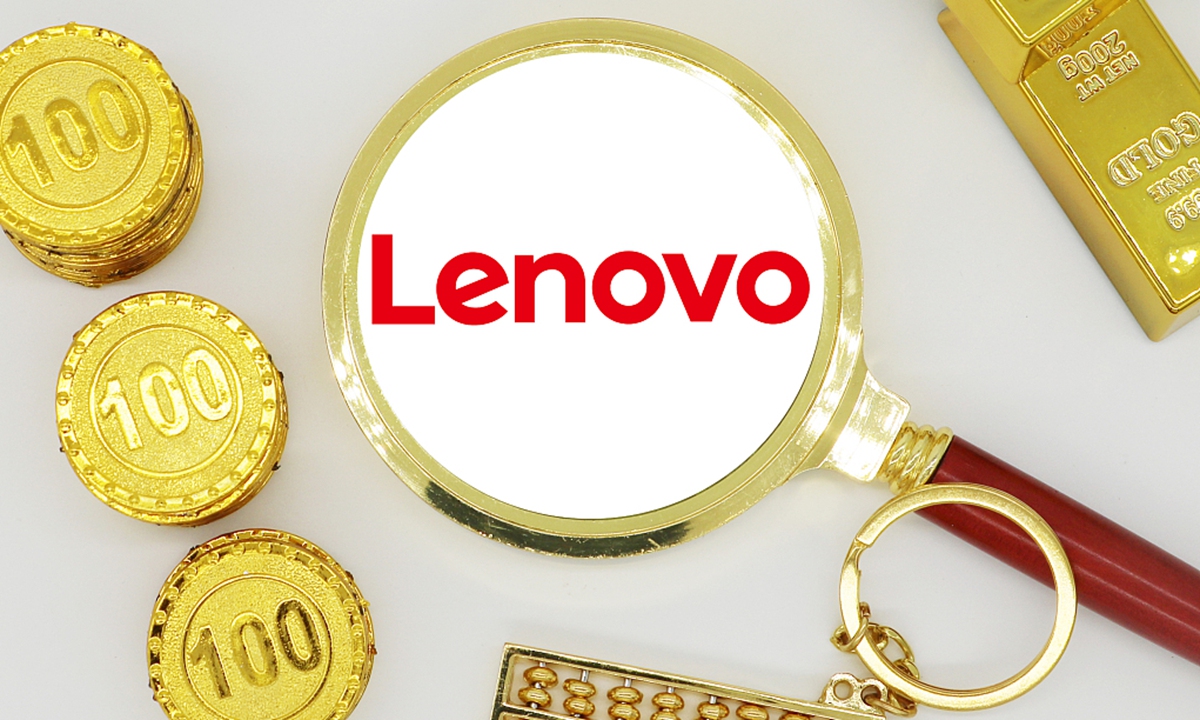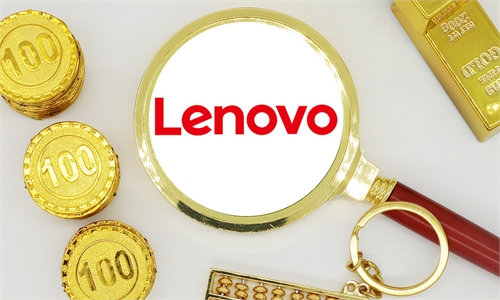Prudent to file ‘loss of state-owned assets’ allegations despite public discontent against Lenovo continues

Lenovo Photo: CFP
Independent scholar and social commentator Sima Nan resorted seven videos to question Lenovo's alleged cheap sale of state-owned assets. He alleged that Lenovo's key executives, including Liu Chuanzhi and Yang Yuanqing, with their high salaries of hundreds of millions of yuan, are playing the show of "poor temple but rich abbot," invoking the metaphor that as an enterprise or a collective gradually moves toward poverty, the wealth of the person in charge of the enterprise or the collective increases. His utterances have caused great uproar online. I personally don't want to comment, but it has become a focus of public opinion, and many netizens urged me to say a few words, so here is my thought.In my opinion, Sima Nan's doubts are based on public opinion. They are a reflection of the comprehensive dissatisfaction with Lenovo that has been accumulated among Chinese public in recent years. Lenovo used to be a pioneer of reform. Liu and Yang, in a sense, participated in the definition of Chinese entrepreneurs. The society gave Lenovo, Liu and Yang high respect and had expectations of them. Lenovo is regarded to have made the commitment to Chinese people to lead IT enterprises in China and promote China's high-tech industry.
However, Lenovo actually derailed from the route of trade, industry and technology. Instead of making real efforts to scientific and technological innovation after original accumulation, it gradually withdrew from the front line of national scientific and technological progress, and made fewer contributions to China's core competitiveness. Many people felt that this failed to live up to their expectations on Lenovo as a well-established enterprise.
In particular, it has been eclipsed by tech companies such as Huawei that have suffered from US crackdown, and was not as innovative in patterns compared with emerging companies such as Xiaomi. But Liu and Yang, and their likes still enjoy a high salary of hundreds of millions of yuan in the partially state-owned enterprise. As a result, both the public image of the whole company and their own personal images have become fragile. In fact, doubts emerged a long time ago.
However, I think that we should be prudent regarding whether Liu and Yang, and Lenovo should be considered under the severe perspective of loss of state-owned assets. When Lenovo transformed from a wholly owned subsidiary of the Chinese Academy of Sciences to a joint-stock venture, it was the product of that era, objectively speaking
As a result, it has led to a shrinking of a share of state capital, but it had been a leader in tech industry for a long period. Perhaps it can be said that if there had not been a shareholding system reform in those days, there would be no Lenovo in the latter years. Lenovo is the biggest enterprise to come out of the Chinese Academy of Sciences. Horizontally, none of China's product-oriented IT giants is a pure state-owned enterprise.
Liu and Yang had a high reputation among Chinese entrepreneurs. Lenovo has strived to become the world's largest personal computer vendor by unit sales. It had its advantage in the field of supercomputing in China, and it is also one of the world's top fortune 500 enterprises. The situation was far from dire, but the public is within reason to be disappointed.
I once met a Lenovo officer abroad, he told me that he admired Huawei more because Huawei has simultaneously created a huge team of talents for itself and China. It has also cultivated a large management talent base in China. But Lenovo failed to do so. He said, for example, that he was almost alone and without any help in the region abroad for which he was in charge. His boss was a foreigner while his subordinates were all local people. Even staffs of Lenovo carry this sense of loss, let alone outsiders.
Although Lenovo has become mediocre, it's still worth a discussion whether we should respect and protect its model of internationalization as one of the various management types of Chinese enterprises. It seems that lack of worship toward Lenovo is different from the denunciation of it. As China is increasingly globalized, interests of some enterprise will become more diversified in different countries, as is the case with Japan's Sony. But the problem is we no longer find Lenovo, for which we had high hope, the fighter in our expectations, amid a great many troubles China is facing.
Obviously, the halo of Liu and Yang doesn't shine any more. We had no idea how the history would treat their past achievement, whether affirming their leadership in the past or viewing Lenovo's attitude of "letting others break through" while focusing on making a fortune itself as their "degeneration." It's easier to get answers if we wait longer.
I have consulted many experts and scholars for their opinions before writing this article. Despite their differences in the moral evaluations of Sima Nan's practice, they all pointed out that his utterances were professionally flawed. Sima Nan is a friend of mine, so I don't think he would mind if I bluntly cite these comments about him here.
In my opinion, it should be extremely prudent to decide whether Lenovo is in responsible for "a loss of state assets" as many private and join-stock companies are accused of this so-called original sin. China's economy used to be completely state-owned and collectively owned, but now the irreplaceable private enterprises accounts for most of the economy. Though lots of private enterprises were not transformed from state-owned enterprises, there were still many that were once related to township economies in extremely complicated situations. In addition, the direction of restructuring was recognized and promoted by local governments. I am quite worried that there will even emerge a movement toward private entrepreneurs which might destroy their enthusiasm and increase their sense of insecurity if we insist on investigations.
As for the high salaries of hundreds of millions to Liu, Yang and others, I think Sima Nan's query reflects the common discontent of the public. In the context of promoting common prosperity, Liu and Yang should treat such criticism with an open mind and rethink it.
The author is editor-in-chief of the Global Times. opinion@globaltimes.com.cn



